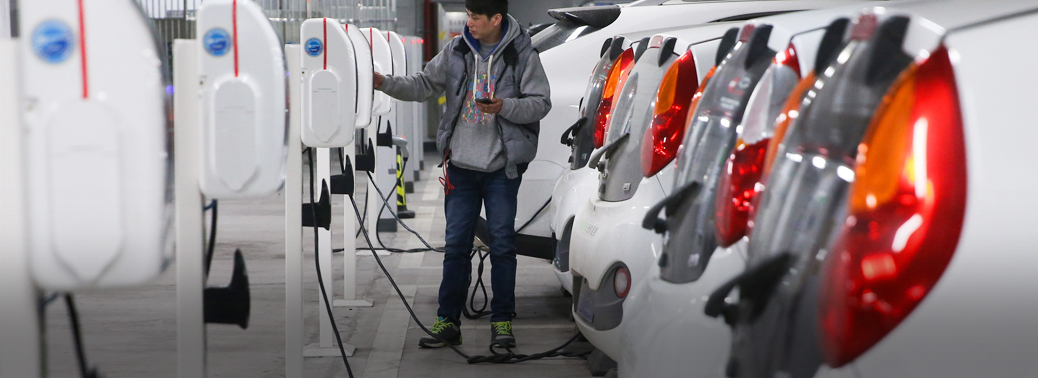ELECTRIC VEHICLES DO NOT NEED PERMITS
17, Sep 2018

Prelims level : Paper – III Science & Technology Development
Mains level :
Why in news?
- Electric vehicles and vehicles that run on alternative fuels such as compressed natural gas (CNG) and ethanol will not require permits to ply on roads.
>Background:
- Gadkari said that all states have given their support to Centre’s move to end permits for such vehicles. He was speaking at the annual convention of Society of Indian Automobile Manufacturers (SIAM).
- While the minister did not specify the timeline of the decision’s implementation, it may happen within three months.
- A permit is an instrument issued by a state or regional transport authority, allowing the use of a vehicle as per provisions of the Motor Vehicle Act. Various permits required by commercial vehicles include contract carriage bus permit, goods carrier permit and cab permit, among others.
- The move to end permit era for eco-friendly vehicles will result in saving time and money and is also likely to encourage fleet owners to add more green vehicles.
- Giving any additional incentives on electric vehicles for personal use, saying there is already a GST benefit extended on them. GST on electric vehicles has been kept at 12%.
- There was no need to further subsidise electric vehicles, but ministry was preparing non-fiscal measures to have at least 15% EVs in the country in five years.
- Electric vehicles imported for testing will be exempted from duties. The exemption will be limited and enable manufacturers to evaluate if these vehicles can be made locally.
- The government was considering removing speed governors from the roads since the emphasis is on better infrastructure and cleaner roads.
Electric vehicles:
- An electric vehicle, also called an EV, uses one or more electric motors or traction motors for propulsion.
- An electric vehicle may be powered through a collector system by electricity from off-vehicle sources, or may be self-contained with a battery, solar panels or an electric generator to convert fuel to electricity.
- EVs include, but are not limited to, road and rail vehicles, surface and underwater vessels, electric aircraft and electric spacecraft.
Advantages of electric vehicles:
- Cheaper to run – the cost of charging an EV is equivalent to paying around 30 cents per litre for petrol.
- Charge up at home – EVs can be charged anywhere there is a power point, just like charging your cell phone. You can wake up to a ‘full tank’ every morning by plugging in at home, and never have to go out of your way to a petrol station again.
- Pollution-free driving – BEVs don’t have a tailpipe and produce no exhaust emissions that cause local air pollution.
- Noise reduction – EVs are quieter than petrol or diesel vehicles.
- 80% reduction in CO2 emissions in New Zealand – this significant reduction in emissions is because 80% of New Zealand’s electricity is generated from renewable sources. There are also many other advantages to using this home-grown energy compared with using imported fossil fuels.
- Fewer lifecycle emissions – even when you take into account raw material extraction, battery manufacture, vehicle manufacture and shipping, BEVs emit 60% fewer climate change emissions over their full life cycle than for petrol vehicles.
- More efficient – EVs can convert well over 90% of energy from their batteries into moving the car. This compares to 20% – 30% energy conversion for a petrol or diesel vehicle.
Challenges of electric vehicles:
- Price – new EVs tend to cost more to buy than equivalent conventional cars, but much lower running costs will help offset the initial higher price tag.
- Range – most EVs don’t travel as far on a full-charge as petrol or diesel vehicles travel on a full tank.
- Battery re-use and recycling – if an EV battery reaches the end of its vehicle life, it may still have a useful second life, for example storing electricity from solar PV panels. EV manufacturers already have recycling programmes in place.






